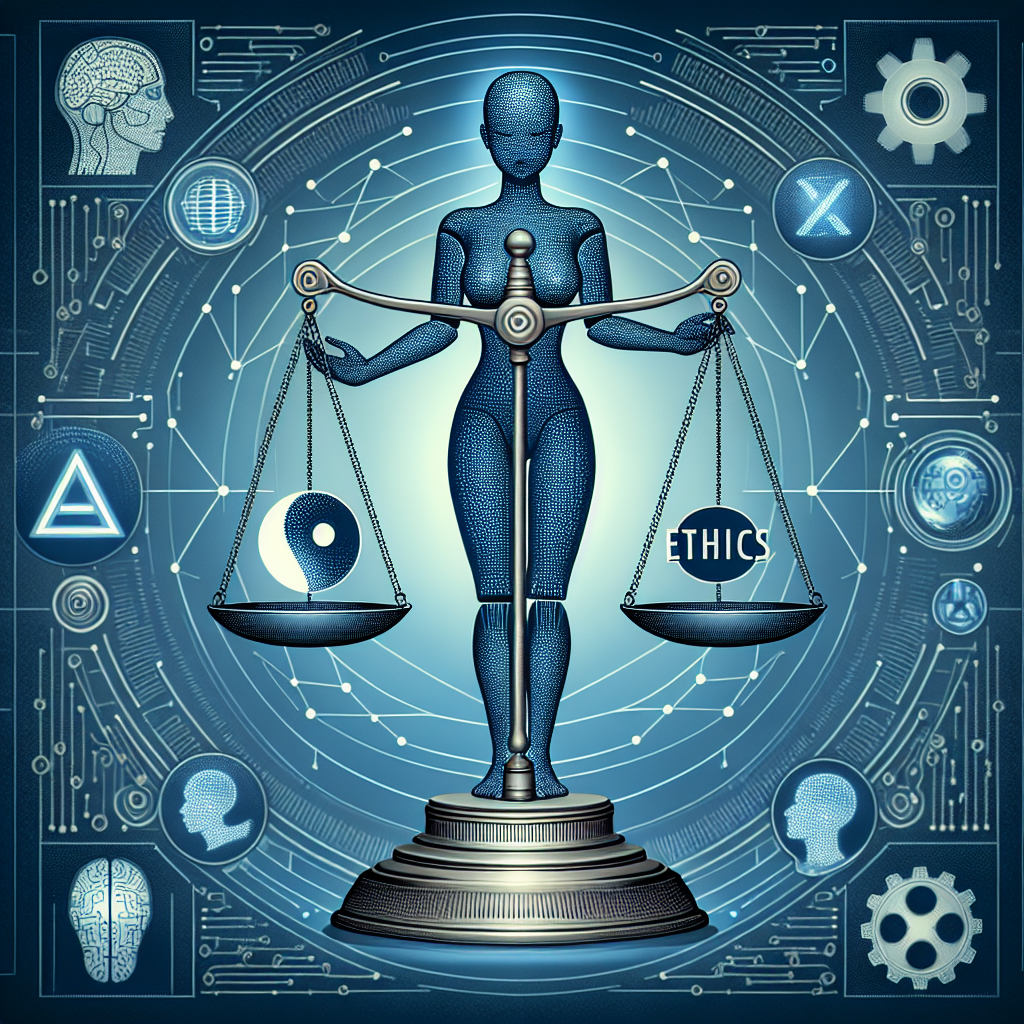In recent years, the development of artificial intelligence (AI) has revolutionized the way we interact with technology. One of the most popular applications of AI is in the form of personal assistants, such as Siri, Alexa, and Google Assistant. These AI-powered assistants are designed to help users with a wide range of tasks, from setting reminders and making appointments to answering questions and providing recommendations.
While AI-powered personal assistants have undoubtedly made our lives easier and more convenient, there are also ethical concerns that need to be addressed. The way these personal assistants collect and use data, make decisions, and interact with users can have significant implications for privacy, security, and fairness. In this article, we will explore the role of ethics in AI-powered personal assistants and discuss some of the key considerations that developers and users should keep in mind.
Privacy and Data Protection
One of the most pressing ethical concerns surrounding AI-powered personal assistants is the issue of privacy and data protection. These assistants are constantly collecting data about users, including their voice commands, search queries, and location information. This data is used to improve the performance of the assistant and provide more personalized recommendations and responses.
However, the collection and use of this data raise important questions about consent, transparency, and accountability. Users may not always be aware of the extent to which their data is being collected and how it is being used. They may also be concerned about the security of their data and the risk of it being exploited or shared without their permission.
Developers of AI-powered personal assistants have a responsibility to ensure that users’ privacy rights are respected and protected. This includes providing clear information about the data that is being collected, obtaining consent from users before collecting sensitive information, and implementing robust security measures to prevent unauthorized access or disclosure of data.
Fairness and Bias
Another ethical consideration in the development of AI-powered personal assistants is the issue of fairness and bias. AI algorithms are trained on large datasets that may contain biases or prejudices, which can lead to discriminatory outcomes in the recommendations and decisions made by the assistant.
For example, a personal assistant that is trained on data that is predominantly from one demographic group may be more likely to provide biased recommendations or responses that favor that group over others. This can have serious implications for fairness and equality, particularly in areas such as hiring, lending, and healthcare where AI-powered systems are increasingly being used to make important decisions.
To address this issue, developers need to be mindful of the potential biases in their training data and take steps to mitigate them. This may involve using more diverse and representative datasets, implementing bias detection and correction techniques, and regularly monitoring and evaluating the performance of the assistant to ensure that it is making fair and unbiased decisions.
Transparency and Accountability
Transparency and accountability are also important ethical considerations in the design and deployment of AI-powered personal assistants. Users should have a clear understanding of how these assistants work, what data they collect, and how they make decisions. This transparency is essential for building trust and confidence in AI systems and ensuring that users are able to make informed choices about their use.
At the same time, developers and companies that deploy AI-powered personal assistants must also be accountable for the decisions and actions of these systems. If a personal assistant makes a mistake or causes harm to a user, it is important that there are mechanisms in place to investigate and rectify the issue, as well as to hold those responsible accountable.
FAQs
Q: How do AI-powered personal assistants protect my privacy?
A: AI-powered personal assistants protect your privacy by implementing robust security measures to prevent unauthorized access or disclosure of your data. They also obtain your consent before collecting sensitive information and provide clear information about the data that is being collected and how it is being used.
Q: How do AI-powered personal assistants address bias and fairness?
A: AI-powered personal assistants address bias and fairness by using more diverse and representative datasets, implementing bias detection and correction techniques, and regularly monitoring and evaluating their performance to ensure that they are making fair and unbiased decisions.
Q: What should I do if I suspect that my AI-powered personal assistant is making biased recommendations or decisions?
A: If you suspect that your AI-powered personal assistant is making biased recommendations or decisions, you should report the issue to the developer or company that deployed the assistant. They should have mechanisms in place to investigate and rectify the issue, as well as to ensure that it does not happen again in the future.
In conclusion, the role of ethics in AI-powered personal assistants is crucial for ensuring that these systems are developed and deployed in a responsible and ethical manner. Developers and users alike must be mindful of the ethical considerations surrounding privacy, fairness, bias, transparency, and accountability in order to build trust and confidence in AI systems and promote the responsible use of this transformative technology.

